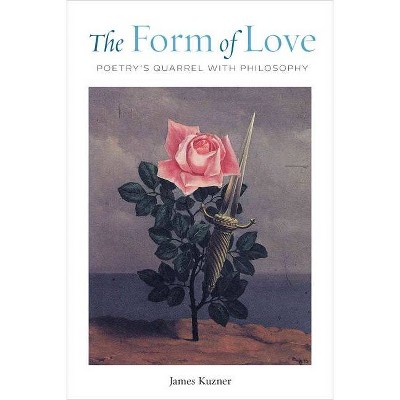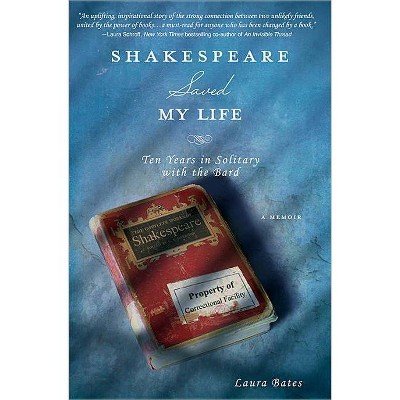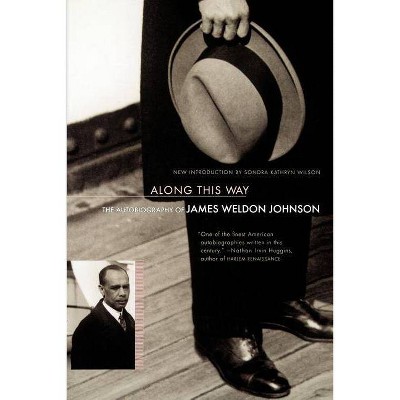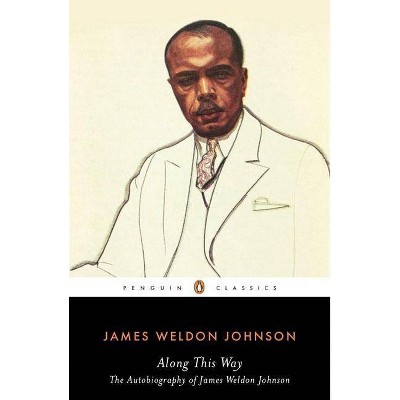Shakespeare as a Way of Life - by James Kuzner (Paperback)
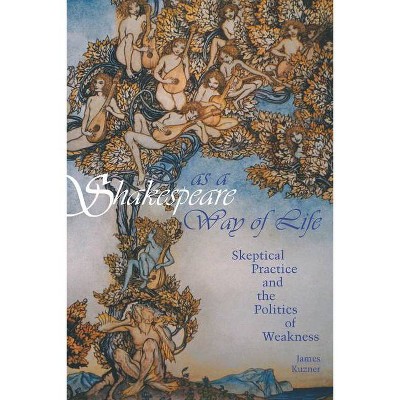
Similar Products
Products of same category from the store
AllProduct info
<p/><br></br><p><b> About the Book </b></p></br></br>Shakespeare is worth reading, this book argues, because his works help us to make epistemological weakness into a way of life. Kuzner shows how his works offer a means for coming to terms with basic uncertainties about freedom, the world's abundance, and the demands of love and social life.<p/><br></br><p><b> Book Synopsis </b></p></br></br><p><i>Shakespeare as a Way of Life </i>shows how reading Shakespeare helps us to live with epistemological weakness and even to practice this weakness, to make it a way of life. In a series of close readings, Kuzner shows how <i>Hamlet</i>, <i>Lucrece</i>, <i>Othello</i>, <i>The Winter's Tale</i>, <i>The Tempest</i>, and<i> Timon of Athens</i>, impel us to grapple with basic uncertainties: how we can be free, whether the world is abundant, whether we have met the demands of love and social life. <p/>To Kuzner, Shakespeare's skepticism doesn't have the enabling potential of Keats's heroic "negativity capability," but neither is that skepticism the corrosive disease that necessarily issues in tragedy. While sensitive to both possibilities, Kuzner offers a way to keep negative capability negative while making skepticism livable. Rather than light the way to empowered, liberal subjectivity, Shakespeare's works demand lasting disorientation, demand that we practice the impractical so as to reshape the frames by which we view and negotiate the world. <p/>The act of reading Shakespeare cannot yield the practical value that cognitive scientists and literary critics attribute to it. His work neither clarifies our sense of ourselves, of others, or of the world; nor heartens us about the human capacity for insight and invention; nor sharpens our ability to appreciate and adjudicate complex problems of ethics and politics. Shakespeare's plays, rather, yield cognitive discomforts, and it is just these discomforts that make them worthwhile.</p><p/><br></br><p><b> Review Quotes </b></p></br></br><br>In a field still laboring under the weight of New Historicism, James Kuzner's <i>Shakespeare as a Way of Life </i>constitutes a refreshing deviation from customary scholarly practice.-- "Renaissance Quarterly"<br><br><i>Shakespeare as a Way of Life</i> is a thoughtful, meditative, beautifully written book that will interest readers of all critical stripes, whether their bent is toward history, theory, or close reading. Kuzner gives us poised and nuanced readings of his key Shakespearean works. Most of all, he makes a brilliant, original case for Shakespeare's carving out a new kind of skepticism, one that is his own and not classifiable as purely Pyrrhonian or Montaignean or proto-Cartesian.<b>---Katherine Eggert, University of Colorado, Boulder, <i></i></b><br><br>This is broad and provocative thinking of the first order that promises to show how Shakespeare engages what remain some of the deepest questions concerning the human condition. Throughout the book, Kuzner reads Renaissance humanism, ethics, epistemology and theology in relation to their modern responses and redirections, reinvigorating historical study and theoretical discourse alike through the kinds of astute and creative cross-pollination that have made him such a distinctive voice on the scene of Renaissance studies.<b>---Julia Reinhard Lupton, University of California, Irvine, <i></i></b><br><p/><br></br><p><b> About the Author </b></p></br></br>James Kuzner is Joukowsky Family Assistant Professor of English at Brown University.
Price History
Price Archive shows prices from various stores, lets you see history and find the cheapest. There is no actual sale on the website. For all support, inquiry and suggestion messagescommunication@pricearchive.us
